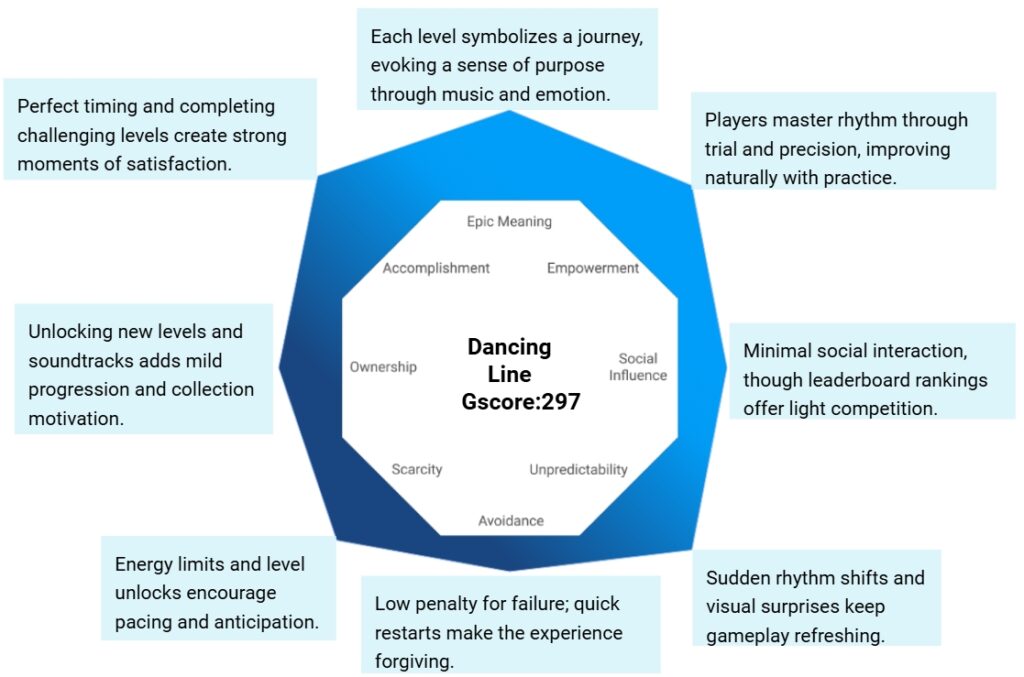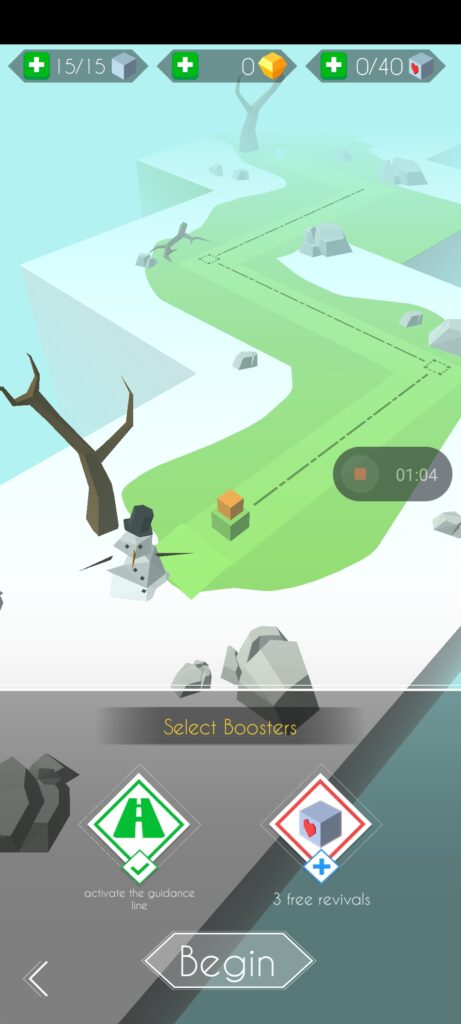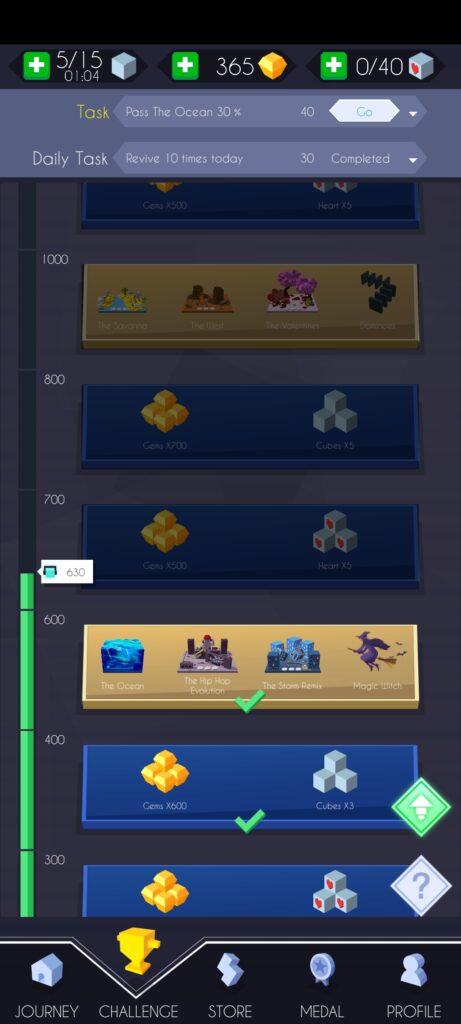I’ve played countless rhythm-based mobile games, but Dancing Line instantly stood out for its emotional simplicity and perfect synchronization between music and movement. In this game, you guide a constantly advancing line through obstacle courses that shift and evolve with the beat of the soundtrack. Each stage tells a story — from serene deserts to icy mountains — blending visual rhythm and musical flow in a way that feels both meditative and thrilling.
Today, we’ll thoroughly evaluate “Dancing Line“ using Yu-kai Chou’s gamification framework – Octalysis – combined with our experience of this game. Here’s our detailed breakdown:
Octalysis Rating Table
| Core Drive | Score | Brief Description |
|---|---|---|
| Meaning | 7 | Each level symbolizes a journey, evoking a sense of purpose through music and emotion. |
| Accomplishment | 8 | Perfect timing and completing challenging levels create strong moments of satisfaction. |
| Empowerment | 7 | Players master rhythm through trial and precision, improving naturally with practice. |
| Ownership | 5 | Unlocking new levels and soundtracks adds mild progression and collection motivation. |
| Social Influence | 4 | Minimal social interaction, though leaderboard rankings offer light competition. |
| Scarcity | 6 | Energy limits and level unlocks encourage pacing and anticipation. |
| Unpredictability | 7 | Sudden rhythm shifts and visual surprises keep gameplay refreshing. |
| Avoidance | 3 | Low penalty for failure; quick restarts make the experience forgiving. |
Evaluation Notes:
Scoring range: 1–10. Higher scores reflect stronger implementation of the core drive and greater player motivation.
GScore (Gamification Score): Calculated using the Octalysis Framework tool.
Octalysis Radar Chart

Detailed Analysis
1. Meaning (7/10)
Each level in Dancing Line feels like a musical story. From the “Piano” stage’s calm awakening to the dramatic “The Maze,” the blend of sound and rhythm creates a surprisingly emotional journey. Even without dialogue, I felt like I was moving through a world that evolved with my progress — a metaphorical path of patience and focus.

2. Accomplishment (8/10)
The satisfaction of syncing perfectly with the beat is unparalleled. When I finally cleared “The Beach” after multiple tries, the rising tempo and final note hit perfectly — that moment was pure accomplishment. The difficulty curve rewards precision and persistence, giving a tangible sense of mastery over rhythm.
3. Empowerment (7/10)
The controls are deceptively simple — just tap to turn — but mastering rhythm requires full concentration. Every failure teaches better anticipation of tempo shifts. When I realized I could “feel” the beat without looking at the line, it felt empowering, as if I’d learned the game’s rhythm language.
4. Ownership (5/10)
Progression in Dancing Line mainly comes from unlocking new worlds and music. While there’s no deep customization, I found myself attached to certain tracks that matched my playstyle. Owning new levels feels like collecting songs in a personal playlist — small but meaningful motivation.

5. Social Influence (4/10)
There’s a leaderboard system, but the game remains primarily a personal experience. It’s more about self-expression and rhythm mastery than competing with others. However, seeing global rankings does inspire occasional replay to beat personal bests.
6. Scarcity (6/10)
Energy limitations and level unlocks introduce a gentle sense of pacing. When I ran out of attempts, I actually looked forward to trying again later. The game subtly builds anticipation rather than frustration.
7. Unpredictability (7/10)
The game’s level design constantly surprises. Music tempo shifts, visual transitions, and hidden turns keep me alert. Some moments, like a sudden rhythm change in “The Winter,” caught me completely off guard — but that’s part of what keeps it exciting.
8. Avoidance (3/10)
Failure in Dancing Line feels light — one mistake restarts the run instantly. There’s no harsh punishment, which makes experimenting comfortable. This low-stress loop encourages learning instead of fear of loss.
Overall Summary & Recommendation
Dancing Line excels at turning rhythm into emotion. It balances accomplishment and empowerment beautifully, allowing both casual and skilled players to find joy in its elegant simplicity. The minimalist art style and music-driven flow make it ideal for anyone seeking focus and calm rather than pure competition.


Leave a Reply